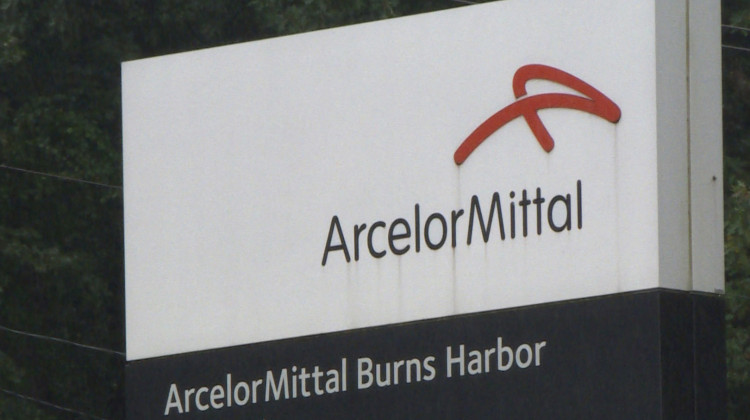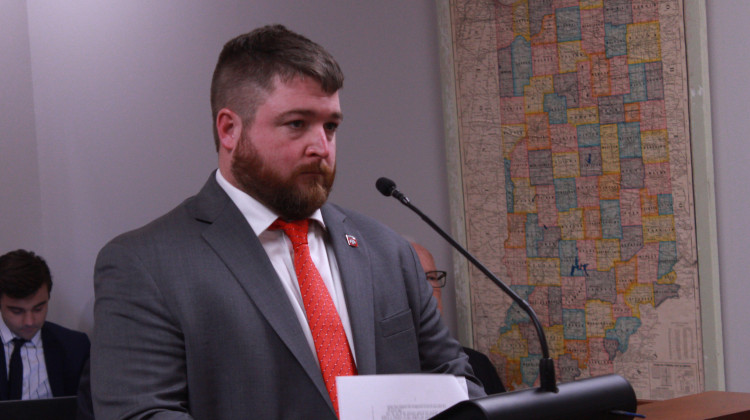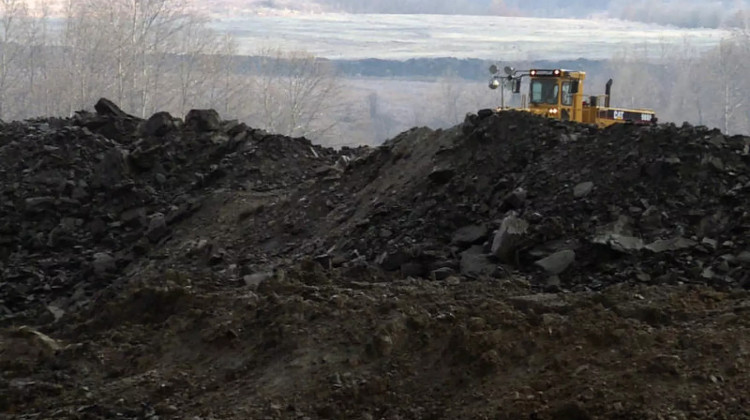
Cleveland Cliffs' Burns Harbor plant, formerly owned by ArcelorMittal, emitted the equivalent of 7.5 million tons of carbon dioxide in 2021. That's roughly the same greenhouse gas emissions as 1.6 million passenger cars on the road.
FILE PHOTO: Tyler Lake/WTIULast week, Suncoke Energy announced it extended its agreement with Cleveland Cliffs to provide the company with more than 1.2 million tons of coke a year until 2035.
Coke is made from coal. It’s one of the ingredients needed to make steel in a blast furnace. These furnaces not only emit a lot of greenhouse gases, they also release things like nitrogen oxides, sulfur dioxide, and particle pollution — which could cause lung and heart problems for people living nearby.
Indiana steel plants regularly top the charts for most toxic releases from industry in the state. They also make up a quarter of all the greenhouse gas emissions that come from Indiana.
Cleveland Cliffs' Burns Harbor plant emitted the equivalent of 7.5 million tons of carbon dioxide in 2021. That's roughly the same greenhouse gas emissions as 1.6 million passenger cars on the road.
Industrious Labs — a group that aims to decarbonize heavy industry — said Cleveland Cliffs could use technology like green hydrogen and electric arc furnaces — putting its emissions near zero.
Ben Inskeep is the program director for the Citizens Action Coalition. He said the U.S. will need more steel in the future for things like electric cars and wind turbines. And those companies will want their raw materials to be sustainably produced too.
“The company is really locking itself into this pathway. That's not really where the industry is going and it's not where the demand is going," Inskeep said.
There's also money to make the transition. The Biden administration made more than $6 billion in grants available for industries to switch to cleaner technology.
Ariana Cristie with Industrious Labs said this unprecedented amount of funding can help to reduce pollution in the communities that house these plants. She said it could also create jobs as companies like electric car makers look to buy sustainable steel.
“With that new funding, we can kind of re-shore domestic supply chains and bring back some of these manufacturing jobs to the U.S.," Cristie said.
Despite its commitment to using blast furnaces, Cleveland Cliffs also recently joined a regional hub that aims to produce hydrogen for steelmaking. This type of hydrogen comes with its own emissions since it's produced using natural gas instead of renewable power.
READ MORE: Indiana steel companies will have to get greener — but it won’t be easy
Join the conversation and sign up for the Indiana Two-Way. Text "Indiana" to 73224. Your comments and questions in response to our weekly text help us find the answers you need on statewide issues, including this series on climate change and solutions.
Cleveland Cliffs has a climate goal of reducing its greenhouse gas emissions by 25 percent by 2030. In a conference call on the company's 2023 first quarter earnings, Cleveland Cliffs president and CEO Lourenco Goncalves said the company was on track to meet that target.
"Because of the metrological requirements and quality needs of our automotive customer base, we remain committed to the blast furnace BOF steelmaking route, and we will continue to work to make it less carbon intensive," he said.
Lourenco said the blast furnace at the company's Burns Harbor plant was up for relining in 2025. Industrious Labs said that would be a major investment that could extend the life of the furnace by 18 years.
Lourenco said the company was also pursuing carbon capture and storage — which environmental justice advocates say doesn't address the root causes of climate change and allows industry to further pollute communities.
The Intergovernmental Panel on Climate Change has said we have to stop emitting greenhouse gases soon to avoid the worst effects of climate change.
We couldn’t reach Cleveland Cliffs in time for comment.
Rebecca is our energy and environment reporter. Contact her at rthiele@iu.edu or follow her on Twitter at @beckythiele.
9(MDAyMzk1MzA4MDE2MjY3OTY1MjM5ZDJjYQ000))
 DONATE
DONATE






 Support WFYI. We can't do it without you.
Support WFYI. We can't do it without you.